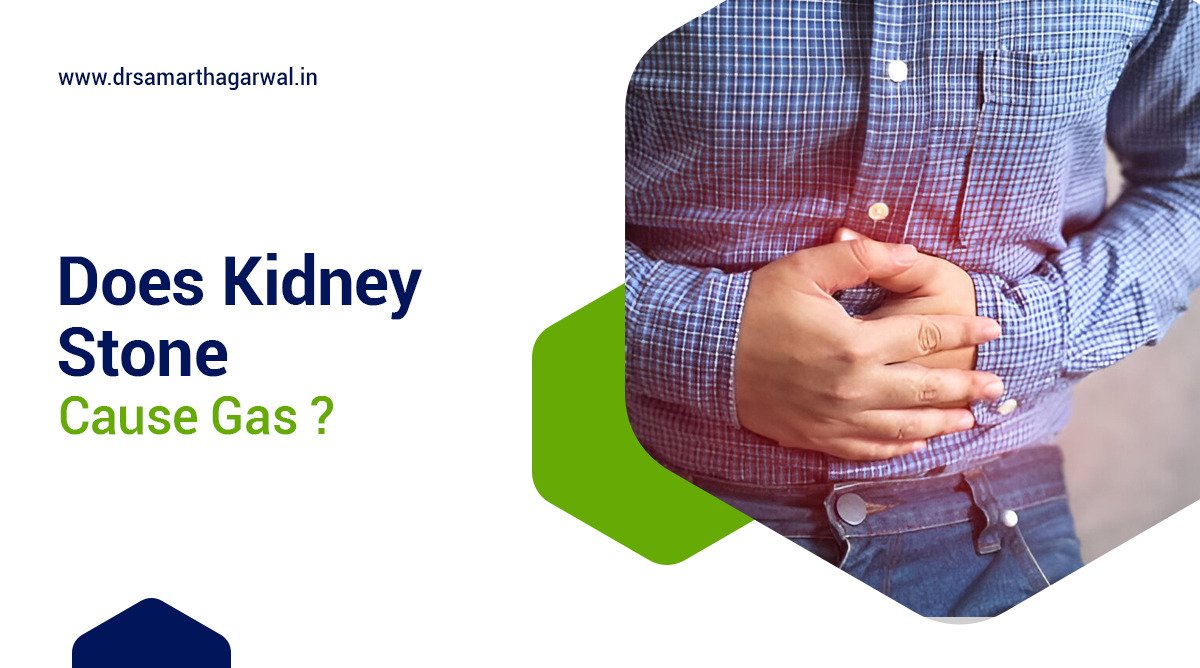Kidney stones are a common health issue that can lead to various symptoms, including pain and discomfort. While many people are aware of the intense pain associated with kidney stones, there is often confusion regarding their relationship with gastrointestinal symptoms, particularly gas. This article aims to explore the connection between kidney stones and gas, examining whether kidney stones can cause gas and other related symptoms.
Can Kidney Stones Cause Gas?
Kidney stones can cause gas in rare cases, as seen in a patient with severe vesicoureteral reflux and asymptomatic Escherichia coli urinary tract infections.
According to Pakkyara, A., Jha, A., Al Salmi, I., Mohammed, E., Jothi, V., Al Lawati, S., Al Maamari, S., & Faisal, F. A. M. (2019). Gas in the kidney in asymptomatic Escherichia coli urinary tract infections in a patient with severe vesicoureteral reflex
Can kidney problems cause gastric problems?
Yes, kidney problems can cause gastric issues. Kidney stones can lead to significant pain and discomfort, affecting the digestive system. This pain may alter eating habits, resulting in gas and bloating. Additionally, if kidney stones obstruct the urinary tract, toxins can build up in the body, impacting gastrointestinal function. Therefore, individuals with kidney stones may experience symptoms like gas, bloating, and nausea. It’s important to seek medical advice if experiencing both kidney and gastric symptoms.
Is it normal to have gas with kidney stones?
Experiencing gas while dealing with kidney stones is not uncommon. The pain associated with kidney stones can lead to changes in dietary habits, which may result in increased gas production. Additionally, the discomfort from kidney stones can cause individuals to swallow more air, further contributing to gas accumulation in the gastrointestinal tract. While kidney stones primarily cause urinary symptoms, the associated abdominal pain can lead to a sensation of bloating and gas, making it seem as though the two are connected.
Furthermore, the stress and anxiety that often accompany the experience of having kidney stones can also play a role in gastrointestinal disturbances. Stress is known to affect digestion, leading to symptoms such as gas and bloating. Therefore, while kidney stones may not directly cause gas, the overall experience of dealing with them can certainly contribute to gastrointestinal discomfort. It is important for individuals to monitor their symptoms and consult with healthcare professionals for appropriate management.
Can kidney stones cause bloating and constipation?
Yes, kidney stones can potentially trigger gastrointestinal problems like bloating, gas, and constipation. The presence of kidney stones can cause inflammation in the bowel, leading to changes in bowel function. Additionally, certain medications for treating kidney stones may also contribute to constipation.
Constipation is a common symptom in patients with chronic kidney disease (CKD), with prevalence ranging from 14.2% to 90.3%.
Cha, Ra Ri, Seon-Young Park, and Michael Camilleri. 2023. “Constipation in Patients With Chronic Kidney Disease.” Journal of Neurogastroenterology
Can kidney stones cause diarrhea?
There is currently no evidence that diarrhea is a symptom of kidney stones. However, diarrhea can occur due to abdominal surgery, which is sometimes needed to remove kidney stones. In rare cases, kidney stones may lead to gastrointestinal issues like irritable bowel syndrome (IBS) or bowel obstruction, which can cause changes in bowel movements.
Other Causes of Gas in Kidney Stone Patients
In addition to the potential effects of kidney stones on gas production, there are other factors that may contribute to gas in individuals with kidney stones. Digestive problems, such as irritable bowel syndrome (IBS) or food intolerances, can coexist with kidney stones and lead to increased gas production.
Dietary Factors Contributing to Gas:
- Foods high in fiber: Beans, cruciferous vegetables
- Gas-producing foods: Carbonated beverages
- Other dietary considerations: Food intolerances, individual sensitivities
Importance of a Balanced Diet:
Individuals with kidney stones should be mindful of their diet and consider consulting with a healthcare provider or nutritionist to develop a balanced eating plan that minimizes both kidney stone formation and gastrointestinal discomfort.
Can digestive problems cause kidney stones?
Yes, digestive problems such as diarrhea, certain diets, and specific health conditions like inflammatory bowel disease can lead to the development of kidney stones.

If you have any inquiries or worries regarding your urinary health, feel free to reach out to Dr. Samarth Agarwal!




